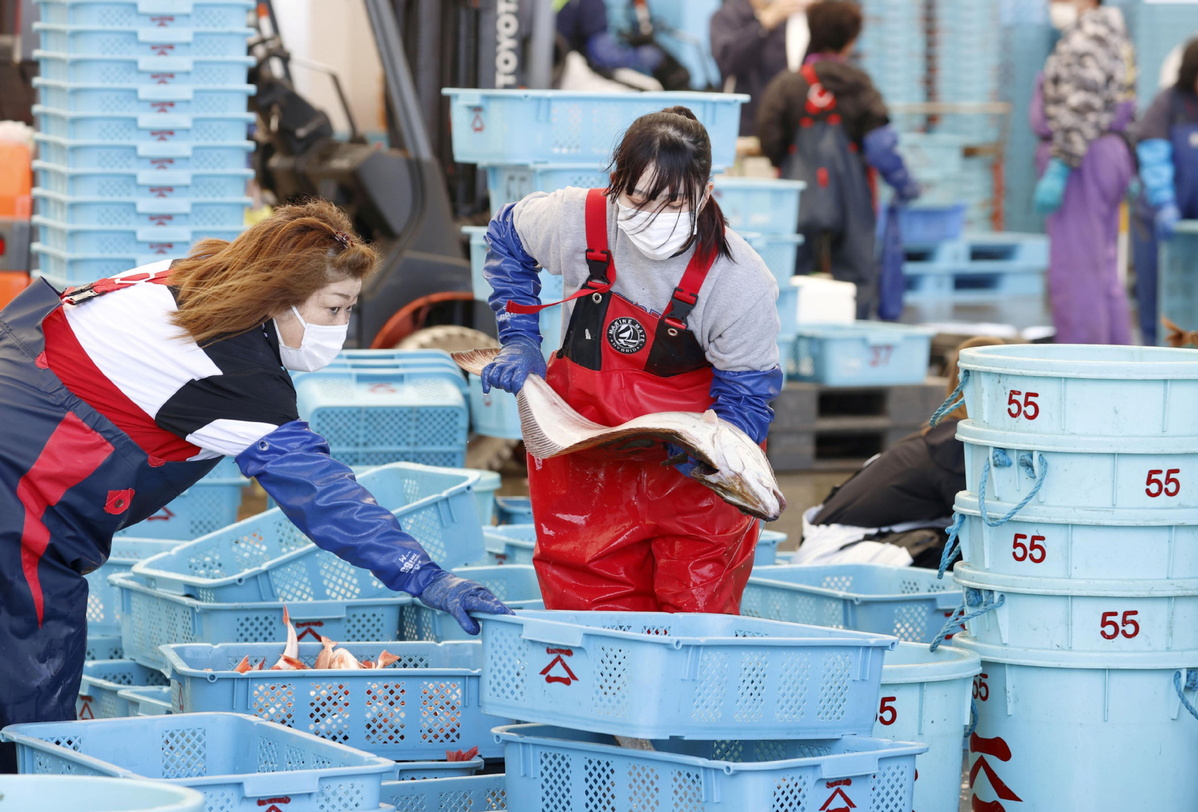Fish radioactive report prompts Fukushima ban
By WANG XU in Tokyo | China Daily | Updated: 2021-04-21 09:26

The Japanese government banned shipments of black rockfish from Fukushima on Monday, after a radioactive substance was found to be more than five times higher than acceptable levels in the fish caught off the prefecture.
The Fukushima prefectural government said 270 becquerels of radioactive cesium were detected per kilogram of the black rockfish, which had been caught at a depth of 37 meters near the city of Minamisoma, Fukushima, on April 1.
The amount of radioactive cesium is five times more than the limit set by a local fisheries cooperative of 50 becquerels per kg. It is also sharply higher than Japan's national standard in general foods of 100 becquerels per kg.
In response, Japan's national nuclear emergency response headquarters on Monday ordered a ban on the shipment of the fish caught off the waters of Fukushima.
Early in February, radioactive cesium 10 times above permitted levels in Japan were detected in the same area.
Scientific research showed the amount of cesium in foods and drinks depends upon the emission of radioactive cesium through the nuclear power plant, mainly through accidents. High levels of radioactive cesium in or near one's body can cause nausea, vomiting, diarrhea, bleeding, coma, and even death.
Monday's restrictions came a week after Japan's government decided to release radioactive water from the crippled Fukushima Daiichi nuclear plant into the sea despite fierce opposition from fishing crews at home and concern from the international community.
"The (Japanese) government's decision is outrageous," said Takeshi Komatsu, an oyster farmer in Miyagi prefecture, north of Tokyo. "I feel more helpless than angry when I think that all the efforts I've made to rebuild my life over the past decade have come to nothing."
South Korea strongly criticized the decision to release the contaminated water, with its Foreign Ministry summoning the Japanese ambassador. President Moon Jae-in ordered officials to explore petitioning an international court over the issue.
























